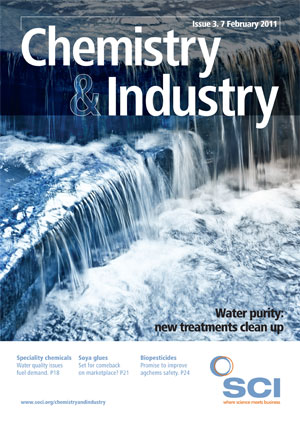French speciality chemical company Rhodia has developed a process to recycle several rare earth metals from the powders found in fluorescent light bulbs. The process will prevent hundreds of tonnes of waste going to landfill and will help feed rare earths back into the market at a time when global concerns over this vital resource for ‘green’ technologies are at an all time high.
Frédéric Carencotte, industrial director of Rhodia Rare Earth Systems, says that presently thousands of tonnes of phosphor powder from energy saving light bulbs are going to landfill each year. Rhodia’s process promises to reverse this trend.
The company will be using both hydrometallurgy and pyrometallurgy to recycle the rare earth metals. However, the company is remaining tight-lipped about the chemicals involved in the process. Carencotte will say that the process should recover about 95% of the rare earths found in the phosphor powders. He adds that Rhodia is also looking into ways of recycling the remaining powder, which is predominantly phosphates – another chemical that it is predicted could soon be in short supply (C&I, 2011, 2, 21).
Hydrometallurgy is a multiple-step process that can recover valuable metals from a range of compounds. In this instance, the luminescent powder is first mixed with an aqueous solution. The metals are then recovered using selective dissolution and precipitation.
The powders found in energy saving light bulbs contain several different rare earth metals – mainly terbium, europium, yttrium, cerium and lanthanum. Carencotte says: ‘These rare earths have some fluorescent properties and the principle for the inclusion of rare earths [in energy saving light bulbs] is to shift the radiation’s wavelength and emit it in the visible spectrum.’
Rhodia plans to have the metal recycling process up and running by 2012 at its Saint-fons and La Rochelle plants in France. Together, the two plants should be able to recover ‘several hundred tonnes of rare earths per year’. Carencotte says that if the technology is a success at these plants they hope to expand Rhodia’s recycling of rare earths.
Carencotte says, however, that the process is still expensive and that ‘economically it is not our best project. This project is driven by our sustainable development approach’. However, Rhodia is talking with the French government and the EU and hopes to receive some kind of subsidy to improve the viability of the work.





